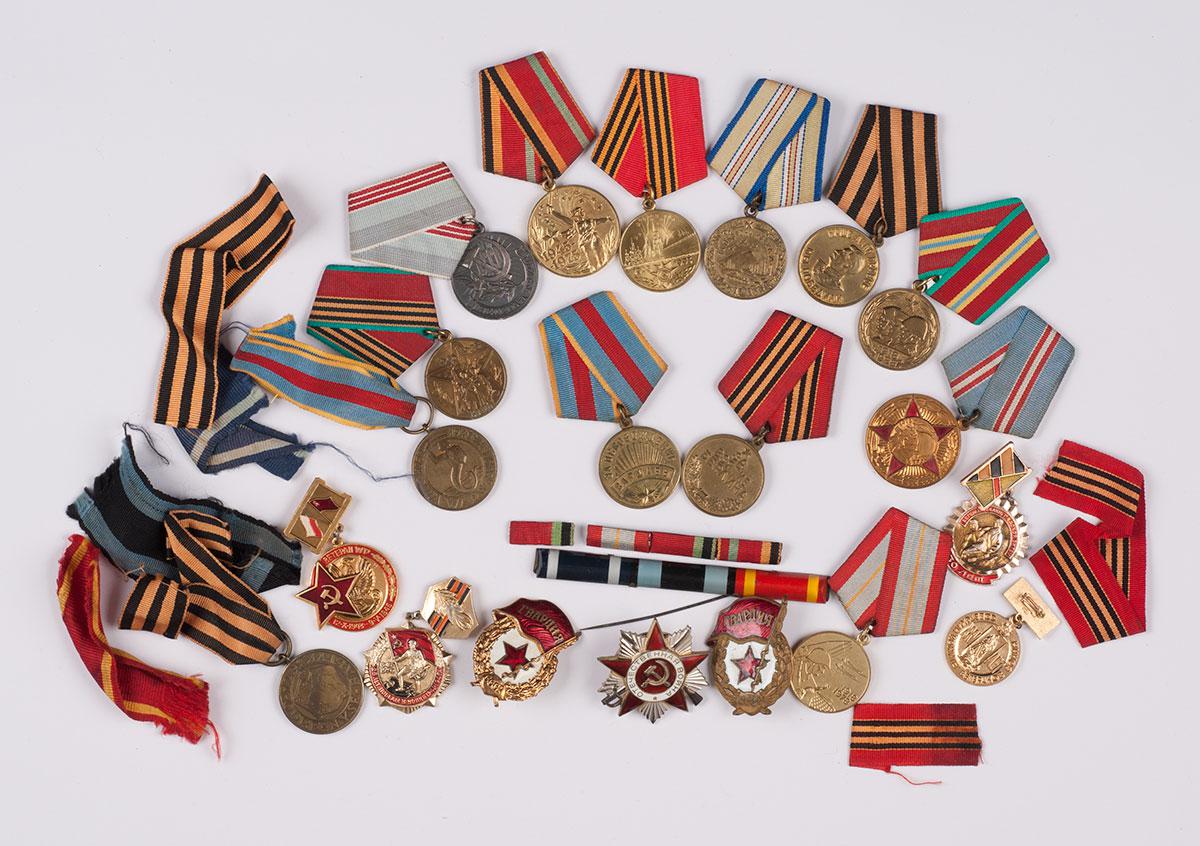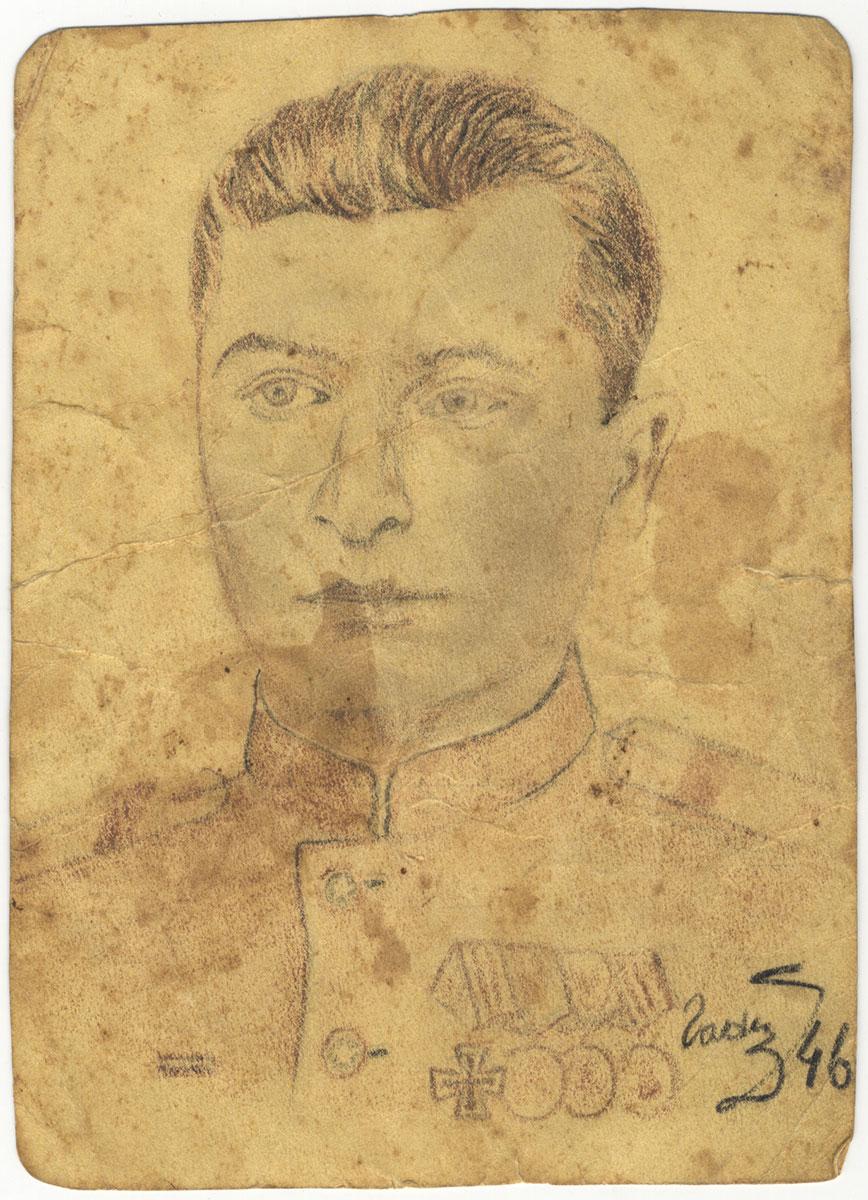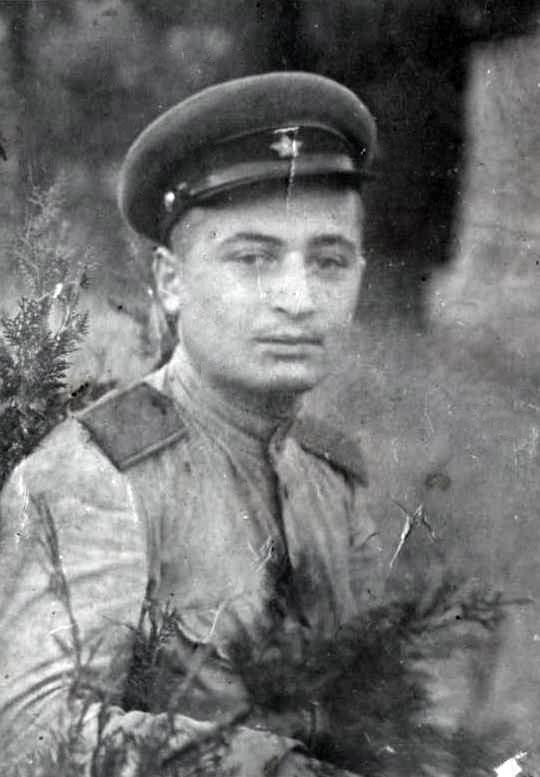





Sunday to Thursday: 09:00-17:00
Fridays and Holiday eves: 09:00-14:00
Yad Vashem is closed on Saturdays and all Jewish Holidays.
Entrance to the Holocaust History Museum is not permitted for children under the age of 10. Babies in strollers or carriers will not be permitted to enter.






A good-looking young man wearing army medals is drawn in pencil on yellowing paper. His name is Simion Mamistvalov, and the artist was his comrade-in-arms. Simion sent the drawing to his family and inscribed a dedication on the back, “An everlasting memento for my parents from your loving son, Breslau, Poland, 23/01/1946.”
Simion Mamistvalov was born in 1924 in Guri, a small city in Georgia. He was the third son in a family of four boys. His eldest brother Yosef was conscripted in 1939 to fight in the war against Finland; in 1941 he was transferred to the front against Germany and vanished without a trace. The second son, Michael, was conscripted to the Red Army in 1941. After a year and a half of service, the family stopped hearing from him too. In 1942 Simion was conscripted to the Red Army. The youngest brother, Eldar, whose three elder brothers had been conscripted and of those, two had disappeared, received an exemption from military service.
Simion graduated a course in Soviet intelligence and began his service as an intelligence expert in artillery ranges. During his service in the Red Army, Simion fought in many battles. He received medals, decorations and certificates signed by “Comrade Stalin” in recognition of the great courage and professionalism that he displayed in battle.
In 1943, with the establishment of the renewed Polish army, Simion was dispatched as an expert in artillery ranges and served there until the end of the war. He took part in pivotal battles, as can be learned in part from the medals that mark his participation in the battles to liberate Warsaw and to conquer Berlin. In recognition of his service to the Polish people, in addition to the medals, he received a practical reward – a hundred dunams of Polish soil.
Simion was demobilized from the Polish army in 1946. He returned to his hometown of Guri and married Esther. The couple had a son and two daughters. Until his final days, Simion lived in a small, two-room house. He never received the land that had been promised to him by the Polish government because of opposition by the Soviet regime.
Simion’s son, Shalva Mamistvalov, immigrated to Israel and lives in Ashdod. Shalva donated all of his father’s photographs, documents and medals from the war period to Yad Vashem. The most important medal, the cross, was lost over the years, but it can be seen in the pencil-drawn portrait of Simion – a Jewish soldier who fought courageously against Nazi Germany.

Thank you for registering to receive information from Yad Vashem.
You will receive periodic updates regarding recent events, publications and new initiatives.

"The work of Yad Vashem is critical and necessary to remind the world of the consequences of hate"
Paul Daly
#GivingTuesday
Donate to Educate Against Hate


Worldwide antisemitism is on the rise.
At Yad Vashem, we strive to make the world a better place by combating antisemitism through teacher training, international lectures and workshops and online courses.
We need you to partner with us in this vital mission to #EducateAgainstHate
The good news:
The Yad Vashem website had recently undergone a major upgrade!
The less good news:
The page you are looking for has apparently been moved.
We are therefore redirecting you to what we hope will be a useful landing page.
For any questions/clarifications/problems, please contact: webmaster@yadvashem.org.il
Press the X button to continue



